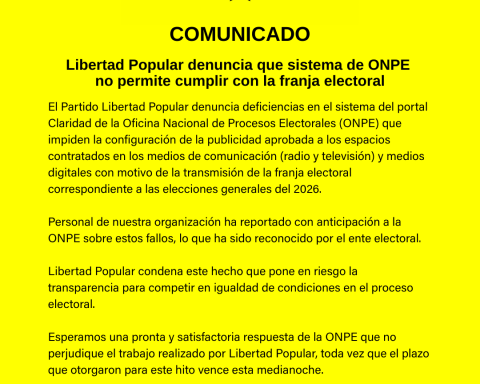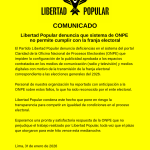The factoring It is becoming more and more relevant in the country, because they are tools used by entrepreneurs as an alternative to obtain immediate liquidity. Between January and April, 328,155 invoices were negotiated for S/ 8,226 million, which represents an increase of more than 40% compared to the same period in 2021, according to the Ministry of Production (Produce).
In this regard, Matías Maciel, co-founder and CEO of Rextie, said that this increase is a clear indicator of economic recovery, especially for small companies that usually bet on this type of financing.
He indicated that, according to figures from Cavali, the trend of increasing the amount financed via factoring operations, represents 2.60% of the total GDP at the end of 2021 compared to our neighboring country such as Chile, which reached 12% of its GDP. in the amounts negotiated.
“In Peru there is a great opportunity with this tool that should continue to be promoted by making known the benefits that factoring brings”he referred.
Advantages of factoring
Factoring is a financial tool where a company sells an invoice receivable to an entity, resigning a percentage of it. In this way, the company does not have to wait 30, 60 or 90 days and obtains liquidity without borrowing.
Along these lines, Maciel pointed out that, in the case of his company, the money for this operation can be received within 48 hours or even the same day and at competitive rates between 1% and 1.5% per month. “It’s not only about cost issues, but also about speed. The main advantage is that small and medium-sized companies are no longer excluded”, he narrowed down.
In addition, he mentioned that another advantage is that it is 100% online, without transfers or paperwork.
Who supervises factoring companies?
In Peru, factoring companies are not subject to sending reports to the Financial Intelligence Unit (FIU), contrary to the mechanisms that do have regulations in Chile.
For more than a month, acquisitions have been made by investment funds of factoring companies in Chile, which has raised alerts from financial analysts and regulators, due to concentration and its possible relationship with the movement in tax havens, Chilean media reported.
Even more, the southern press indicates that its effects extend to Peru, since these companies also operate in the national territory.
In this sense, the co-founder of Rextie argued that in Peru there is a control for the “irregular” acts of formal factoring companies.
He commented that the Superintendence of Banking, Insurance and AFPs (SBS) registers factoring companies, while invoices are registered in Cavali as a financial instrument to be negotiated.
“I think that the FIU is present indirectly, because the transactions are done digitally and all those that are registered with the SBS have control over the FIU. In formal companies there is no source of greater risk (of money laundering)”accurate.
According to the criminal lawyer, Liliana Calderón, for a factoring company to have the legal obligation to report to the Financial Intelligence Unit, it must be under the condition of obligated subject.
“An obligated subject is a natural or legal person that has to implement a system to prevent money laundering and financing of terrorism due to the risks inherent to the economic activity that it carries out,” accurate.
For this measure to occur, explains the lawyer, it has to go through an evaluation by the FIU and it considers that this sector is risky and prone to money laundering. “In addition, this would have to go through an analysis of the SBS and a substantiation in that sense of possible risks,” mentioned.

















